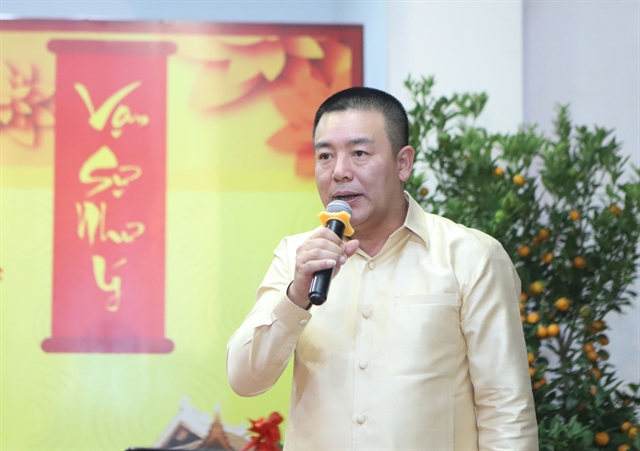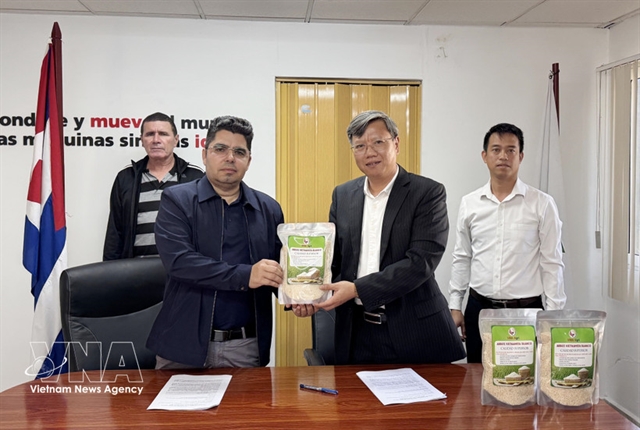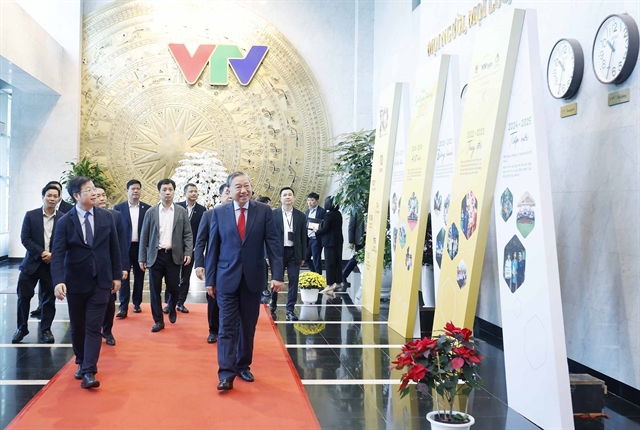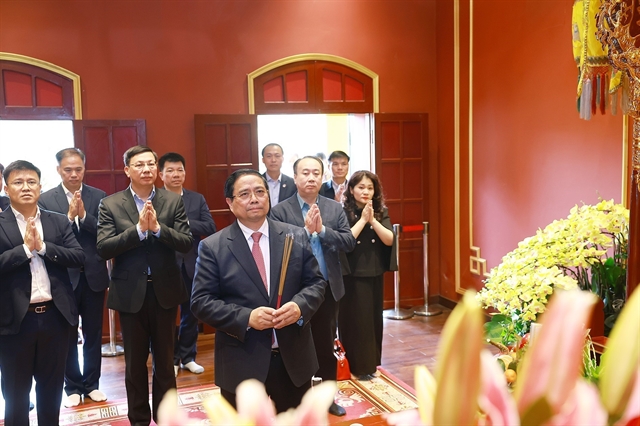 Society
Society
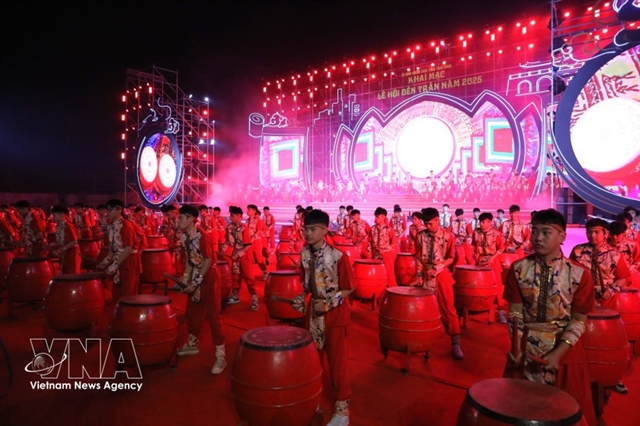
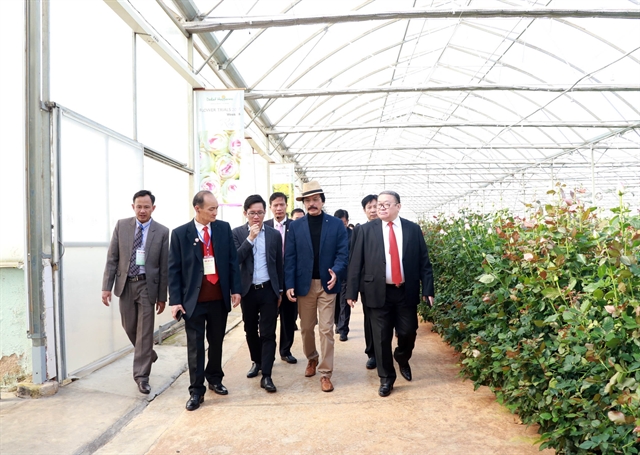
|
| Lao, Cambodian and Vietnamese delegations visited Dalat Hasfarm Co Ltd in Lâm Đồng Province on Monday. — VNA/VNS Photo |
LÂM ĐỒNG — National Assembly Deputy Chairman Phùng Quốc Hiển met on Monday with heads of Lao and Cambodian farmers’ delegations who are taking part in an exchange programme in the Central Highlands Province of Lâm Đồng.
At the meeting in the province’s Đà Lạt City, Hiển reiterated the Vietnamese Party and State’s consistent policy of attaching special importance to relations with Laos and Cambodia and unceasingly enhancing the special solidarity, comprehensive cooperation and trust between Việt Nam and its two neighbours.
He highly valued the exchange programme among the three countries’ farmers, saying it provided an occasion for them to share experience in agricultural production and sales, and to boost co-operation in the field.
Similar activities should be organised on a rotational basis to encourage farmers to adopt innovation, he said, noting that detailed action plans for each year and each period should also be drawn up to enhance co-operation among the countries’ farmers.
Representatives of the Lao and Cambodian delegations said in the short term, to promote connectivity in the sale of agricultural products, the three countries’ border provinces would sign co-operation agreements.
The next exchange programme is expected to be held in December 2020 in Laos or Cambodia.
Meas Pyseth, deputy secretary of state of Cambodia’s Ministry of Agriculture, Forestry and Fisheries, said the Cambodian delegation wished to exchange experience with farmers in Việt Nam as well as those from Laos within the framework of the exchange programme.
Meanwhile, Nhiakerya Nochochongtoua, vice president of the Lao Front for National Construction said the programme was a chance for farmers and businesses to foster co-operation.
A seminar was held in the city later during the day to discuss agricultural trends, farmers and rural development, the role of farmers’ unions in the three countries, as well as smart agriculture and approaches taken in Việt Nam.
Speaking at the seminar, Hiển said: “The Central Committee of the Vietnam Farmers’ Union (VFU) has directed provincial chapters to help provinces bordering Laos and Cambodia in cultivation technology transfer and supply of quality agricultural materials.”
He suggested creating a specific action plan to increase cooperation between the three countries’ farmers, regularly sharing experience on green, clean and organic production, promoting each country’s achievements in science-technology, digital industry, artificial intelligence, and helping firms access local markets.
The VFU was assigned to partner with Vietnamese, Lao and Cambodian ministries, agencies and localities to devise a plan to intensify coordination between their farmers, as well as hold annual and periodic meetings for farmers in Vietnamese, Lao and Cambodian bordering provinces.
According to Deputy Secretary of State of Cambodia's Ministry of Agriculture, Forestry and Fisheries Meas Pyseth, although Cambodia is among the top rice exporters, it still faces challenges due to low farm produce output and quality, and climate change.
There are also challenges such as low quality of agricultural inputs, substandard agricultural value chains that do not meet the needs of markets, ineffective export supporting mechanisms, and ineffective inter-sectoral support and connectivity.
As part of the friendship exchange from November 30 to December 2, a clean farm produce fair and tours of high-tech agriculture models were also organised.
A cooperation agreement signing ceremony was held later during the day between the National Institute of Nutrition and Lâm Đồng cooperatives and farmers. VNS

